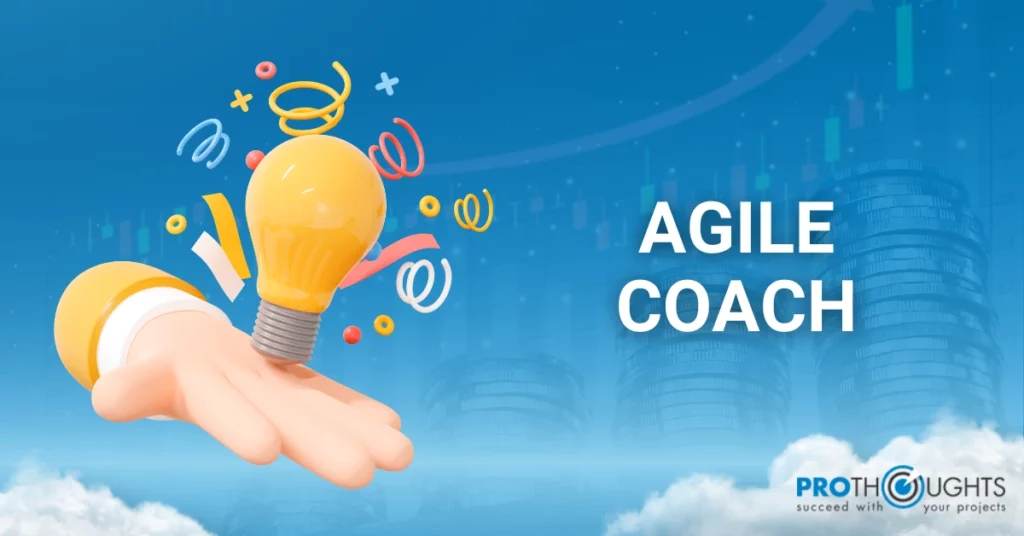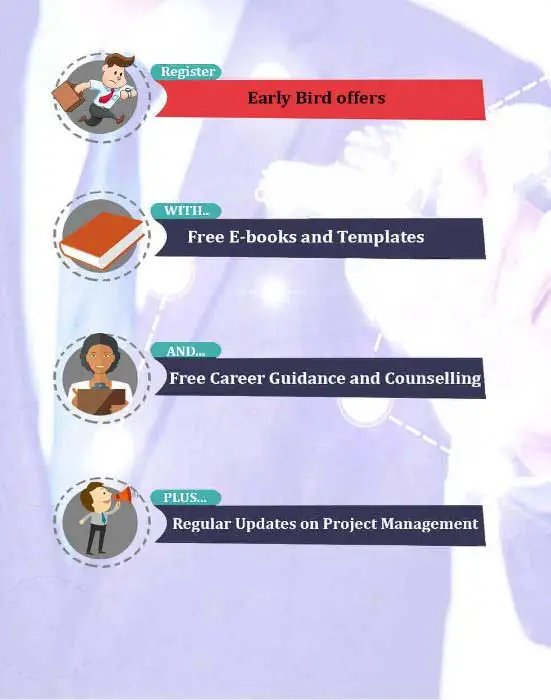
Have you ever wondered why Indeed named Agile Coach as one of the greatest jobs in the world? It is because they enhance organizations while improving productivity and teaching individuals new skills. They also create an encouraging work atmosphere for both themselves and other people.
Let us understand what an Agile Coach does, what advantages they offer, and if this is the ideal career for you.
What is an Agile Coach?
An Agile Coach is a person who accompanies individuals, teams, and organizations to implement “agility”. Here, the goal is to assist teams in enhancing their disciplined agile way of working. The Agile Coach is a problem solver. Coaches focus on teams, and interrelated teams, and can even work with entire organizations.
In a way, It is a Collection of all Agile Scrum Masters, Team Leads, or any other positions. To solve issues within teams, across teams, and organizations, they bring a variety of experience and skills. Therefore, Agile Coaches frequently collaborate with Scrum Masters to help them enhance their methods of operation and support within their teams to provide more effective results.
Is Certification for Agile Coach Important?
Agile is simple to learn but challenging to master, which is why many managers have difficulty adapting to it. The majority of these issues arise from teams, departments, or the entire business. Although, they have set expectations about how simple it is to implement Agile.
For instance, Scrum appears to give a universal solution that is simple to execute, which is a major draw. Every situation is unique, and despite having followed all necessary Agile processes, many project managers still face difficulties. Conversely, there are situations when Agile appears to be effective in one business unit but not in another. So, the coach must guide the teams in applying the right practice in the right situation. Here, validated and verified knowledge, through an Agile certification comes in handy. More specifically, an Agile Coach Certification.
What Are The Benefits of Agile Coaching?
Measuring an agile coach’s effectiveness and impact can be tough. Agile coaches frequently work behind the scenes, so their impact may not be immediately apparent. But, Agile Coaching offers various organizational, interpersonal, and operational benefits. At the enterprise level, an agile coach assists organizations in scaling agile practices across departments, strengthening communication and alignment, and executing large-scale agile transformations. Enterprise agile coaches collaborate with top leaders to ensure that the agile culture is spread throughout the firm.
Agile coaches assist teams enhance their performance. Metrics such as velocity, lead time, and quality can frequently illustrate the beneficial effects of coaching. Furthermore, Agile approaches aim to provide value to the consumer. With an agile coach, you can assist your teams produce higher-quality products or services to customers on time. Finally, Agile coaches have been shown to increase team member involvement and morale. This shows improved teamwork and collaboration.
Companies that prioritize restructuring or improving their workflows under the guidance of a coach provide testimonial proof of:
- The successful execution of a project despite growing difficulties
- Projects completed on time or even ahead of schedule and on budget
- A simplified process for carrying out major modifications
- Improved corporate culture
The Demand For Certified Agile Coaches
Leading to the rapid adoption of Agile, the market for Agile Coaching has been expanding quickly.
According to Glassdoor, the salary of an Agile coach ranges between INR 18,00,000 to INR 35,00,000 in India. The average annual salary is INR 25,25,000, with an average additional cash compensation of INR 2,00,000, with a range from INR 1,00,000 to INR 3,00,000.
On the other hand, in the United States, the base pay range is between $108,000 to $156,000, with an average salary of $130,062 per year. The estimated additional pay is $22,945 per year. In the United States, popular companies such as Spotify, SalesForce, Bank Of America, Wells Fargo, etc show massive openings for the role of an Agile Coach.
What makes an Agile Coach different from a Scrum Master?
| Agile Coach | Scrum Master | |
|---|---|---|
| Role | Outsider in a team | Insider in a team |
| Positioning | Problem solver | Facilitator |
| Focus Area | Team | Team |
| Skills | Multi-skilled | Beginner level |
| Experience | Agile Coaching Experience- Multi-year experience | Can be a beginner level as well |
| Works with | Often leadership and Management levels, as well as the team, | Works mostly with the team |
| Knowledge | Lean-Agile Practitioners, teaching, coaching, mentoring, technical mastery, business mastery, professional coaching and facilitating | Limited in all aspects |
| Duration | Temporary. Has come to solve a specific problem and self-organize the team | Permanent. A critical member of the team |
| Strategic Focus | Works to create strategic change and can be part of Agile Transformation | Tactical focus on day-to-day administrative details of the project. |
| Way of Working | Tries to understand how process creates bottlenecks and tries to improve the Way of Working | Ensures how the existing practice or method should be done. |
| Switching of Roles | Can take the role of Scrum Master | Cannot be an Agile Coach unless trained and developed |
| Similarities | Understands the current way of working, delivering value, Monitoring, and facilitation. | Understands the current way of working, delivering value, Monitoring, and facilitation. |
The main difference between an Agile coach and a scrum master lies in the fact that a Coach doesn’t specifically help people or teams. On the other hand, a Scrum master helps in instructing teams on how to perform tasks.
Coaches ensure that Agile processes are established and implemented in teams, teams of teams, and in organizations. Scrum Masters are usually caught up with tasks on a running project. Moreover, they also closely mentor product owners, development teams, and teams.
In a broader lens, a Scrum Master’s responsibilities revolve around managing a specific project team. Whereas, it aims to improve an organization as a whole.
Skills of an Agile Coach
Below is a chart that explains the key competencies of an Agile Coach:
| Area | Competencies/Skills |
|---|---|
| Personality Traits |
|
| Agile Principles and Practices |
|
| Knowledge Transfer Methods |
|
| Transition Management |
|
| Business Discovery |
|
| Inception |
|
| Project Management |
|
With these skills under your belt, you are sure to become one of the elite coaches who leads businesses to Agility.
The Disciplined Agile Journey: From Scrum Master To An Agile Coach
Well, we covered everything in the blog about What An Agile Coach Truly Does and its Impact. But how do you become one? PMI’s Disciplined Agile gives you a detailed laid-out plan!
Disciplined Agile follows a certification journey starting from the basics to an ultimate expertise level. The first certification in this chain of certification is the Disciplined Agile Scrum Master (DASM). This certification is for individuals who are completely new to agile. Although at ProThoughts we provide you with a Disciplined Agile Foundation course as well, to make the onboarding even more seamless. The next course following this disciplined agile journey is the Disciplined Agile Senior Scrum Master (DASSM). This course is intended for practitioners who are experienced with agile and need to work on more complex projects. This course can be a starter for those agile team members who have previously worked on or led projects for two years or more.
The next courses in this chain of Disciplined Agile certifications are the Disciplined Agile Coach (DAC) and Disciplined Agile Value Stream Consultant (DAVSC). Both these certifications showcase the candidate’s expertise in Disciplined Agile (DA). The DAVSC and DAC certifications are for those practitioners with extensive experience in Agile, as well as for those who are DASSM-certified. PMI introduced the DAVSC certification specifically for agile experts who wish to lead transformations. Whereas, as the name suggests, the DAC is for those who want to coach team members about Disciplined Agile. All these four certifications, along with the foundation course make sure that you are the industry’s best in the field and are capable of leading projects and organizations as a whole to success by introducing Agility.
More About Disciplined Agile Coach Certification
The Disciplined Agile Coach (DAC) is one of the two ultimate certifications in the Disciplined Agile journey. It is designed to make you a Coach who can help enterprises achieve true Agility. As a Coach, you will be the expert authority to consult on the Disciplined Agile toolkit and choose the best way of working (WoW). The Disciplined Agile Coach (DAC) certification gives you the ammunition to coach teams at an organizational level with your Disciplined Agile knowledge and experience.
Conclusion
Well-known financial institutions such as Barclays and Franklin Templeton have used Disciplined Agile. Organizations like IBM, TCS, HCL, and others have recently adopted disciplined agile, and many are now exploring the toolkit. There are increasing indications that Disciplined Agile is performing well for companies. Although it is still early, the recently introduced Disciplined Agile Coach Certification will prove to have a positive effect on the adoption of the Disciplined Agile toolkit.
ProThoughts offers Disciplined Agile Certifications, being the only one in Asia, the Middle East, and Africa to provide the Disciplined Agile Coach Certification. This course will cover both the principles of Agile as well as more complex ideas, methods, and skills that a successful coach should have.
Watch our customer feedback video to understand more about the value of Disciplined Agile Coach Training and this credential.



